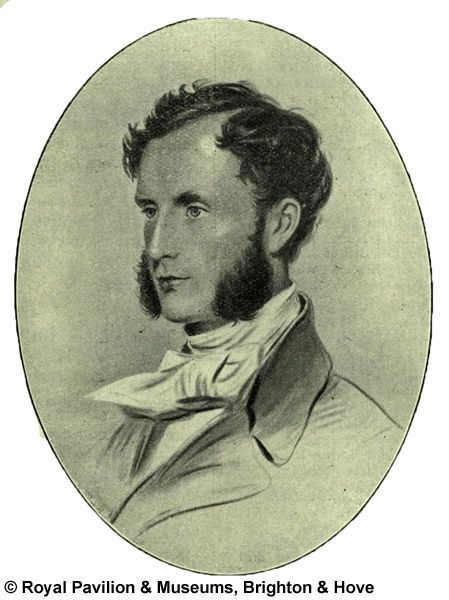
Churches - Bevendean History Project

Holy Trinity Church, Ship StreetA TRIBUTE TO THE MEMORY OF THE LATE REV. F. W. ROBERTSON.
By HENRY D. ROBERTS.
Director of Brighton Public Libraries, etc.
Brighton
is a unique town in many respects, but it has, perhaps, not occurred to
many people that, probably in common with other health resorts, it has
not a large number of old families which have been connected with it
for generations. Some members of the few old families which Brighton
contains have achieved celebrity, not only in the town itself, but
elsewhere. At the same time it is probably admitted that many of those
persons who have made Brighton famous by their residence in our midst
have not been native born.By HENRY D. ROBERTS.
Director of Brighton Public Libraries, etc.
For over 100 years Brighton has received in its midst as visitors many famous persons, from Royalty downwards. The bearers of the majority of outstanding names in the history of art, science and literature have resided at Brighton as visitors. Often, without it being known, perhaps, to their next door neighbours, they have been here. A glance through the current Brighton Directory would be a revelation to many people as showing what a number of eminent persons better known to the outside world than to Brighton itself are amongst our present residents.
Some of these non-native born residents do, it is true, leave a name which is inseparably connected with the town, and the famous divine, the centenary of whose birth is now being celebrated, was one of them.

The late Rev. F W Robertson
From a drawing in Brighton Public Library.
From a drawing in Brighton Public Library.
F. W. Robertson only spent the last six of his thirty-seven years at Brighton, but, in spite of this fact, he is and always will be known as "Robertson of Brighton." There is a rapidly diminishing circle of elderly people m the town who remember Robertson as a preacher, but, to others, he is not even a personal memory, and lives by his teachings (which have been carried on by others) and by his writings. At the same time, it is well that our attention should be more particularly called to Robertson at this time, for, although he was undoubtedly one of the men of whom the poet sang who "departing, leave behind them footprints in the sands of time," yet there are, perhaps, many people living in Brighton of the present generation who have never heard of him and his work. That elsewhere his name is still a fragrant memory is proved by the many enquiries made by visitors to the town for the Church in which he ministered so faithfully and well. Brightonians of the present day pass through Ship Street in their thousands, with perhaps only an occasional thought of the memories enshrined in Holy Trinity Church, but it is surprising the number of visitors who come to the town on purpose to make a pilgrimage to it.
While in Brighton, Robertson lived in two houses, at 9, Montpelier Terrace, and afterwards (possibly for the last three years) at 60, Montpelier Road. Brighton has not yet honoured itself by placing on the latter house a tablet to record that in it the great preacher died; possibly the centenary celebration may result in this omission being rectified.
It is sometimes a little difficult to avoid the banal in centenary and other celebrations, but I think that the arrangements made for celebrating the Robertson centenary in this town are dignified and will answer the purpose well. Dr. Hensley Henson, Dean of Durham, has very kindly consented to deliver a lecture on Robertson in the Permanent Art Gallery at 3.30 p.m. on the hundredth anniversary of his birth. This lecture, which will be presided over by the Mayor, will be the actual official recognition of the centenary.
Dr. Hensley Henson's address will surely be extensively produced in the daily press of the country, which will thus be reminded of the man and his work, and thus will be formed a lasting memorial to the fearless preacher who, like so many other geniuses, was cut off just as he was reaching his prime.
Written in 1916.
